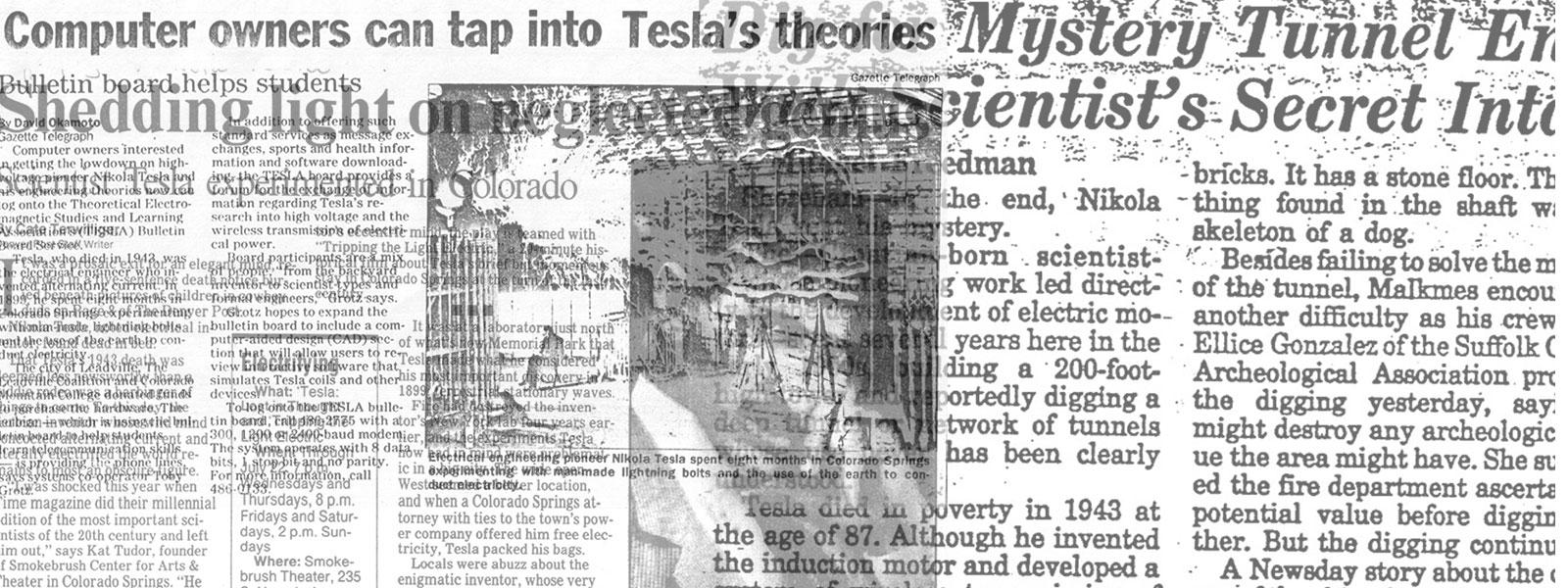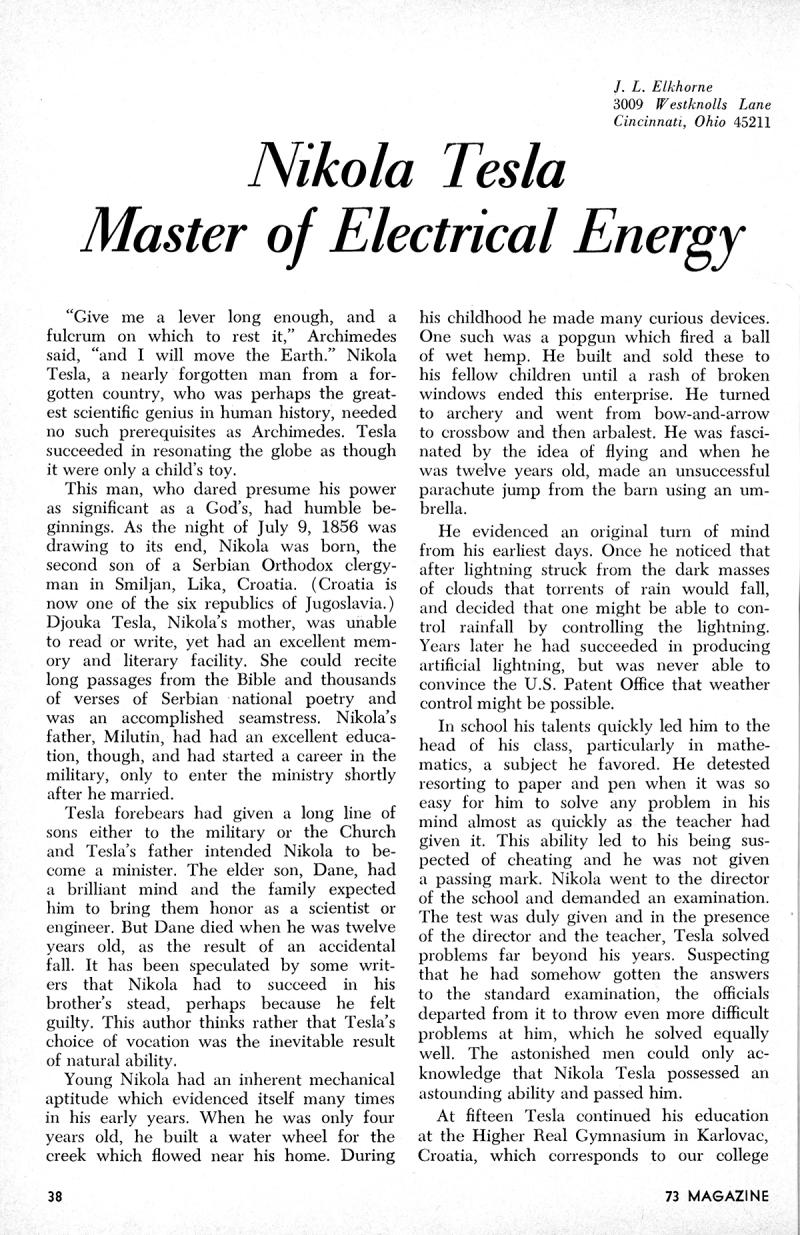
Nikola Tesla Articles
"Give me a lever long enough, and a fulcrum on which to rest it," Archimedes said, "and I will move the Earth." Nikola Tesla, a nearly forgotten man from a forgotten country, who was perhaps the greatest scientific genius in human history, needed no such prerequisites as Archimedes. Tesla succeeded in resonating the globe as though it were only a child's toy.
This man, who dared presume his power as significant as a God's, had humble beginnings. As the night of July 9, 1856 was drawing to its end, Nikola was born, the second son of a Serbian Orthodox clergyman in Smiljan, Lika, Croatia. (Croatia is now one of the six republics of Jugoslavia.) Djouka Tesla, Nikola's mother, was unable to read or write, yet had an excellent memory and literary facility. She could recite long passages from the Bible and thousands of verses of Serbian national poetry and was an accomplished seamstress. Nikola's father, Milutin, had had an excellent education, though, and had started a career in the military, only to enter the ministry shortly after he married.
Tesla forebears had given a long line of sons either to the military or the Church and Tesla's father intended Nikola to become a minister. The elder son, Dane, had a brilliant mind and the family expected him to bring them honor as a scientist or engineer. But Dane died when he was twelve years old, as the result of an accidental fall. It has been speculated by some writers that Nikola had to succeed in his brother's stead, perhaps because he felt guilty. This author thinks rather that Tesla's choice of vocation was the inevitable result of natural ability.
Young Nikola had an inherent mechanical aptitude which evidenced itself many times in his early years. When he was only four years old, he built a water wheel for the creek which flowed near his home. During his childhood he made many curious devices. One such was a popgun which fired a ball of wet hemp. He built and sold these to his fellow children until a rash of broken windows ended this enterprise. He turned to archery and went from bow-and-arrow to crossbow and then arbalest. He was fascinated by the idea of flying and when he was twelve years old, made an unsuccessful parachute jump from the barn using an umbrella.
He evidenced an original turn of mind from his earliest days. Once he noticed that after lightning struck from the dark masses of clouds that torrents of rain would fall, and decided that one might be able to control rainfall by controlling the lightning. Years later he had succeeded in producing artificial lightning, but was never able to convince the U.S. Patent Office that weather control might be possible.
In school his talents quickly led him to the head of his class, particularly in mathematics, a subject he favored. He detested resorting to paper and pen when it was so easy for him to solve any problem in his mind almost as quickly as the teacher had given it. This ability led to his being suspected of cheating and he was not given a passing mark. Nikola went to the director of the school and demanded an examination. The test was duly given and in the presence of the director and the teacher, Tesla solved problems far beyond his years. Suspecting that he had somehow gotten the answers to the standard examination, the officials departed from it to throw even more difficult problems at him, which he solved equally well. The astonished men could only acknowledge that Nikola Tesla possessed an astounding ability and passed him.
At fifteen Tesla continued his education at the Higher Real Gymnasium in Karlovac, Croatia, which corresponds to our college
